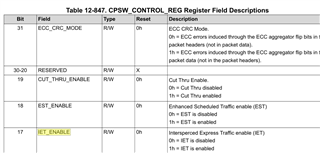Other Parts Discussed in Thread: AM620
Tool/software:
Hi, Dear Expert
After testing with iperf3 for a period of time, there is a possibility of disconnection. After disconnecting, I tried using the ping command to test if I could connect to the host, but found that I couldn't ping the host. I tried to restart the phy device, but the ping command still failed. I checked the kernel logs and did not find any messages related to eth (Mac). I want to know how to check the status of MAC and how to open MAC related logs?
Thanks,
Xiulin Liu




